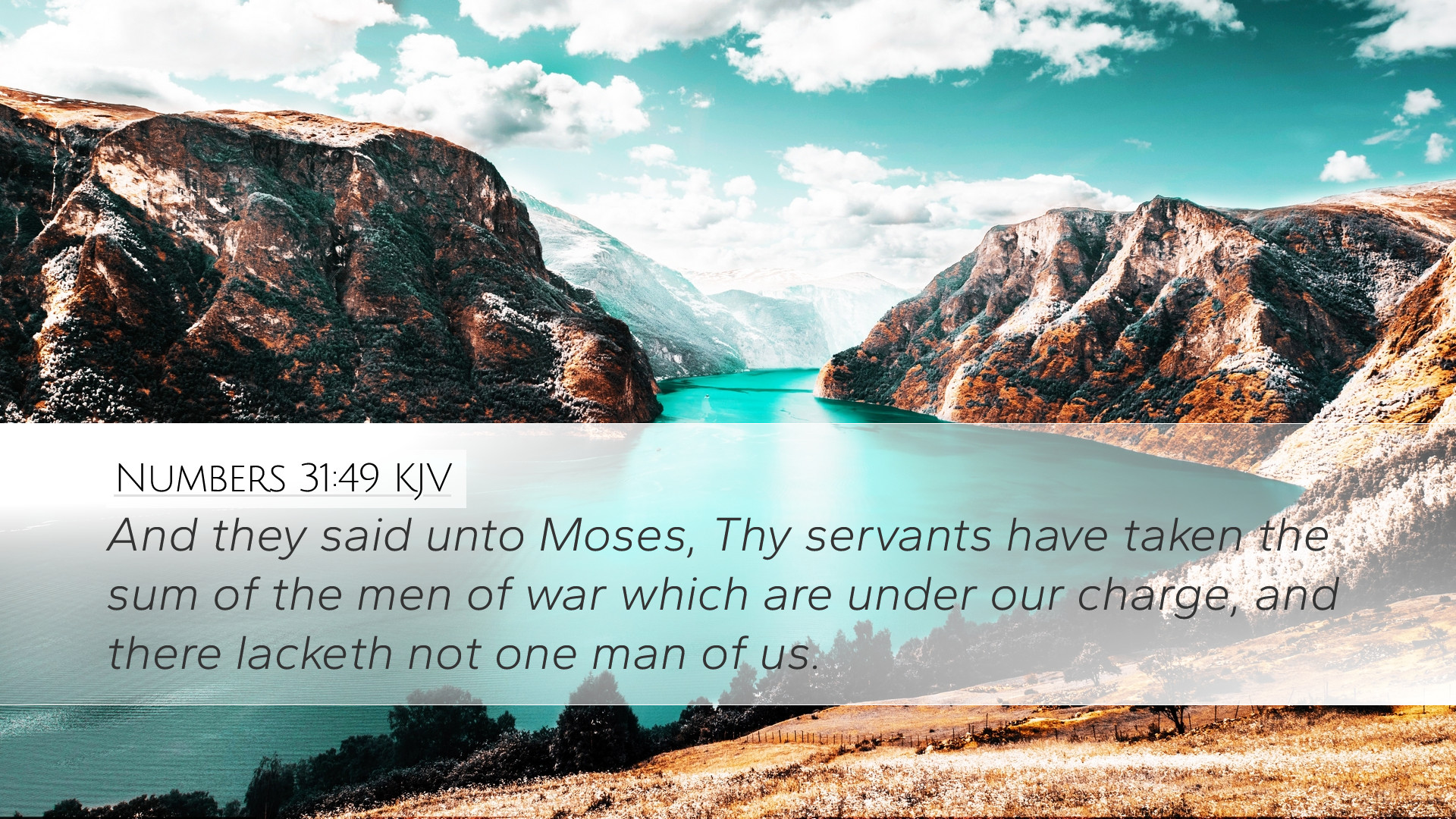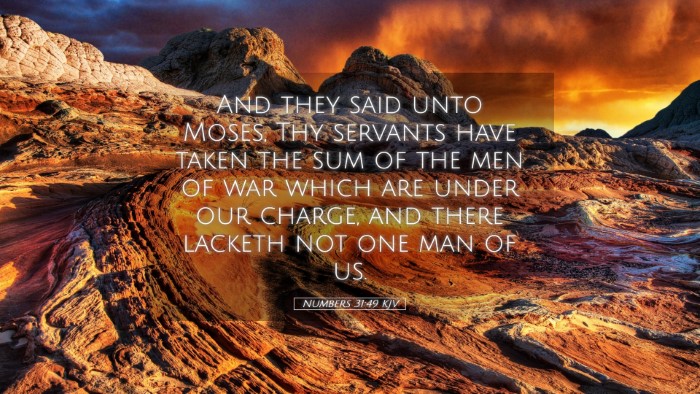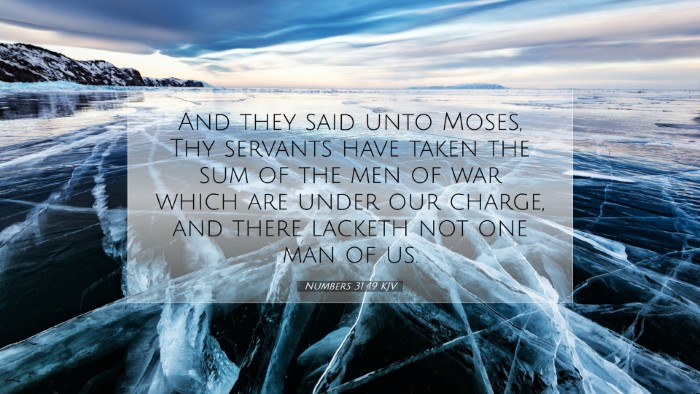Bible Commentary on Numbers 31:49
Bible Verse: "And they said unto Moses, Thy servants have taken the sum of the men of war which are under our charge, and there lacketh not one man of us."
Introduction
Numbers 31:49 captures a significant moment in the wilderness wanderings of the Israelites, marking an important lesson about accountability and divine providence. In this verse, the leaders report to Moses following a military campaign, emphasizing the faithful stewardship of God over His people. The insights drawn from various public domain commentaries provide a deeper understanding of this context and its implications.
Exegesis of the Verse
This verse follows a military engagement against the Midianites, a significant episode that demonstrates God’s judgment against Israel's enemies and His protection over His own. The reporting of "not one man" lacking conveys both a sense of accountability and divine favor.
1. Accountability in Leadership
Matthew Henry emphasizes the importance of accountability among leaders. From this verse, we discern that leaders must be diligent in overseeing their followers. The leaders of the Israelites take their responsibility seriously, ensuring that every soldier is accounted for after battle.
2. The Role of Divine Providence
While human leaders accounted for every man, Albert Barnes highlights that it is ultimately God who protects His people. The outcome of the conflict, where not one man is lost, serves as an affirmation of God’s unwavering protection and His promise to Israel. This victory reflects both human effort and divine intervention.
3. The Importance of Counting
According to Adam Clarke, the act of counting serves multiple purposes. It reflects the organization within the Israelite camp and emphasizes the unity among the soldiers. It is a testament to their preparedness and the careful planning that accompanied their actions. Leaders are called to be meticulous in both planning and execution to ensure the welfare of those they oversee.
Thematic Reflections
This narrative invites readers to consider several overarching themes within the text:
- Stewardship: The leaders’ duty to account for every man highlights the intrinsic nature of stewardship in leadership roles.
- Divine Assurance: The absence of loss signifies divine assurance—the belief that God sustains His people in times of conflict.
- Community and Unity: The successful military mission underscores the necessity of community and unity in achieving common goals.
Application for Today
For pastors, students, and theologians, the lessons drawn from this verse and its subsequent commentaries are multifaceted:
- Leadership Responsibility: Today’s leaders are reminded of their responsibility to care for those they lead, ensuring their spiritual and physical well-being.
- Trust in God: The assurance that God will protect and provide, even in challenges, encourages believers to exercise faith in their personal and communal battles.
- Value of Each Individual: The emphasis on every man being accounted for reinforces the significance of each individual within the body of Christ and the importance of community.
Conclusion
Numbers 31:49 encapsulates essential principles of leadership, divine care, and community. By heeding the insights from renowned commentators like Matthew Henry, Albert Barnes, and Adam Clarke, readers can draw contemporary applications from this ancient text. The assurance of God's protection and the call to responsible leadership remain relevant for today's church and its leaders.


